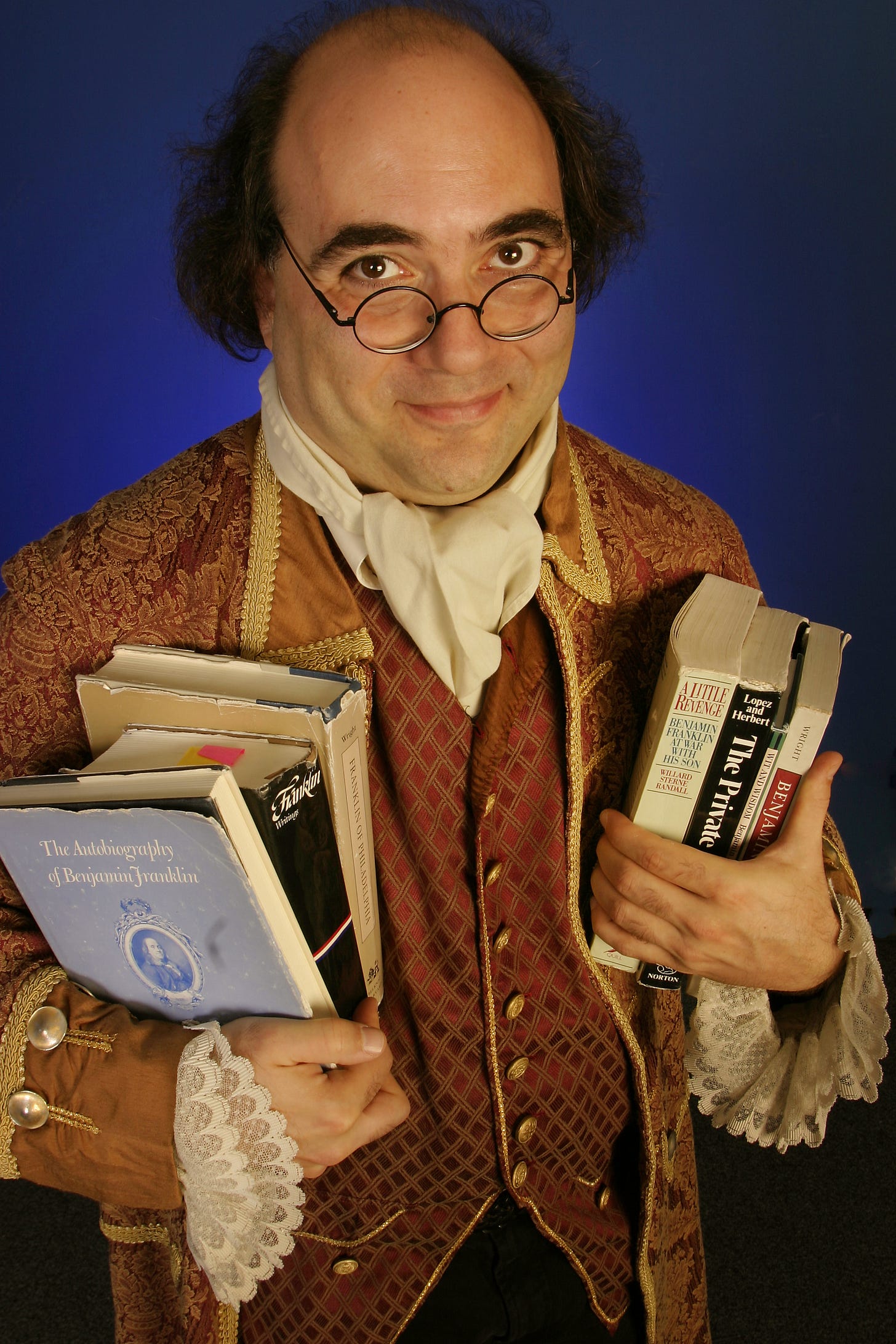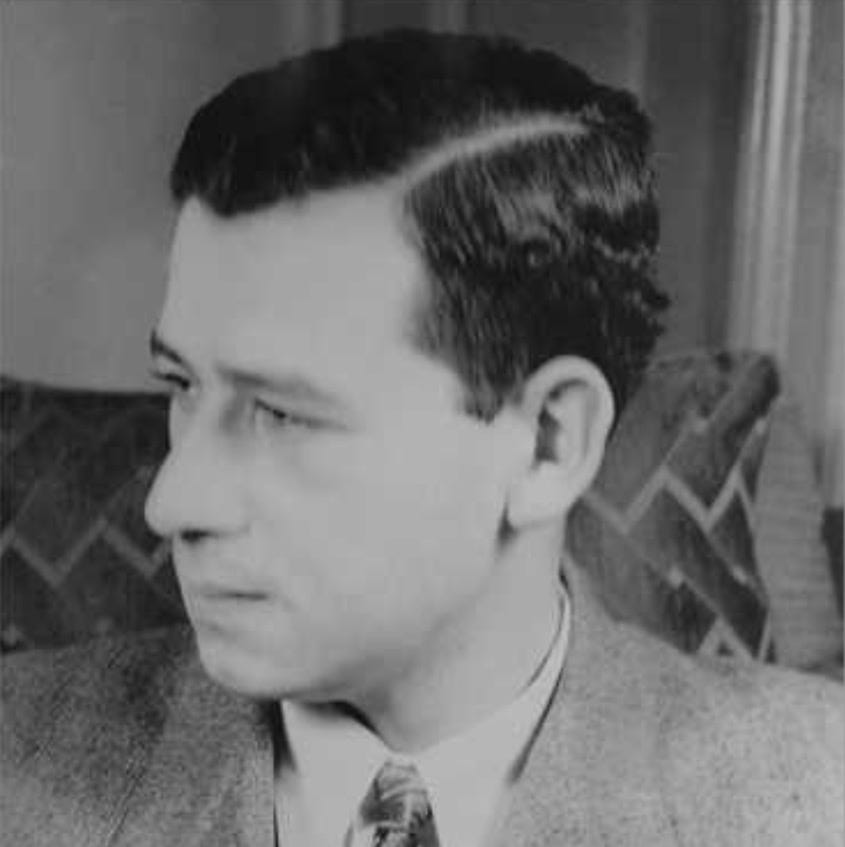A few months ago, when I was deep into a depression, I could not have dreamed that I would soon be touring as a performer again. But last week, for the first time in what seemed like forever, there I was, fresh off a plane, checking into a hotel on a balmy evening in Hartford, Conn. That weekend I’d be performing my solo show Citizen Brain at a magical space called Real Art Ways (RAW). Touring with my monologues used to be how I made my full-time living — but then the economic meltdown of 2008 happened, and later Covid happened, and touring pretty much stopped happening. Over 20 years earlier I’d done several of my shows at RAW, which presents cool movies and art shows as well as live performances, and is run by a lovely man with the smoothest, deepest voice this side of Morgan Freeman, and with one of the greatest names ever: Will K. Wilkins. In our heart of hearts, many of us would have preferred to have been named Will K. Wilkins.
So I’m checking in at this hotel, and the woman at the front desk is speaking to … no one? Eventually I realized that she was on the phone with someone, and that her earbud was in the ear I couldn’t see. I also noticed that they were selling Gummy Bears in the little concessions area and I said to myself, “No, Josh! No! You’re on a lifelong diet now!” Eventually the woman started talking to me, and I got my key card and went up to the seventh floor and slid it in the slot in the door to my room, and … the little light blinked red. I tried again a bunch of times (still the blinking red light), then went back down to the lobby and told the front-desk woman that my key card didn’t work.
She said, “Oh, no — it’s supposed to blink red. You just need to jiggle the handle up and down and then forward and push.” A friend of hers in paint-spattered pants who had apparently stopped by to chat added, chuckling, “Yeah, and then just kind of jiggle it left and right.”
Okay. I went back up to the seventh floor and slipped in the key card, and the little red light started flashing, and I jiggled the handle up and down and then pushed. Nothing. I tried again, this time also doing the left-and-right thing. Again, no go. After a bunch of attempts, I took the elevator back down and told the two of them that the key card still wasn’t working.
The front-desk woman said, “Oh, you just need to— Wait, I’ll go up there with you.” Her friend was grinning at me, like he’d seen plenty of other helpless folks in the past.
So we got back up to the door to my room, and she tried my key card, did some handle-wiggling, and nothing happened. So she got out what I assumed was her master key card, slid it in, opened the door, and—
“Oh my god!” she said. “Someone’s in here!”
She quickly shut the door again.
I said, “I wonder if you could put me in another room.”
A few minutes later, I was in front of a different door, across the hallway from that original room. I slid in my new key card, under the front-desk woman’s watchful eye, and— A little green light blinked, and the door opened! And no one was already in the room!
“Phew!” we both said, each in our own way.
“You know,” I told her, as I rolled in my suitcase, “I’m 65 years old. And in my lifetime, little red blinking lights have always meant, ‘Don’t go in,’ whereas little green lights have meant, ‘Go ahead.’”
She regarded me with wonder — a look that seemed to say, To each his own.
The next morning I awoke and blearily shuffled over to the window and opened the curtains, and— I saw the glorious sight in that picture up top: Connecticut’s State Capitol Building. And I actually, audibly, gasped! It was so magnificent! And I thought, O god, please let’s save our (admittedly quite imperfect) democracy!
As it happens, Citizen Brain is to a large extent about that — about preserving our capacity for empathy even as we fight hard for justice. And last weekend I had an absolutely wonderful time performing it for audiences who seemed to be feeling the same powerful anxieties and hopes, and for 70 minutes we shared these emotions in the same physical space — and I felt like myself again: a touring theater artist, getting to do what I love.
Plus Real Art Ways let me eat all the comp popcorn I desired! (Yeah, they also had Gummy Bears — but you know.)
Back home now in Berkeley, I’m preparing for the first shoot of the movie I’m making with writer Jonathan Lethem about my father’s late cousin Cyril M. Kornbluth, the great science-fiction writer. He died suddenly of a heart attack, at the age of 34, in 1958, the year before I was born. On the plane ride to Hartford, I finished reading a biography of Cyril, and learned how difficult his short life was. He seemed to be troubled in ways that frequently reminded me of my dad: the bad teeth, the moodiness (with a likely tendency toward depression), the outward charm that could mask inward grief. Cyril’s wife, Mary, struggled with alcohol and drugs, and his two sons had various difficulties. Like my father, he was constantly broke — even though he churned out an astonishing number of words, in remarkable short stories and novels.
As I currently read through those writings, I am finding myself in a kind of waking dream — reaching backward towards Cyril as I imagine him somehow trying to strain forward, beyond his untimely death, towards the present. The premise of our film (as I currently understand it — I feel like a character in an early draft of a Jonathan Lethem novel, waiting to learn who I’ll become) is that Cyril didn’t die in 1958 on that commuter-train platform in Levittown, NY, but rather (like the protagonist of his great story “The Marching Morons”) went into a state of suspended animation. He awakens 66 years later, in 2024, and wants to know what has become of the world. Cyril, who weakened his heart fighting fascism in the Battle of the Bulge, has re-emerged into a United States that may itself be on the brink of authoritarianism (or, okay, maybe is already past that brink). I — playing kind of a dream of Cyril — will be interviewing public intellectuals of various political stripes to get their take on what’s been going on, and what might happen next.
I’ve never really portrayed anyone else before. I’ve pretty much just played myself. Nearly 30 years ago, coming out of an earlier deep depression, I felt desperate to get away from myself. Maybe that was my problem, I thought. Autobiographical monologuing had made me too solipsistic: focusing so incessantly on my own navel had caused me to implode into an emotional black hole. One morning, riding a rare burst of get-up-and-go energy, I launched myself out of bed, made my way to the bathroom, and started shaving. At one moment, with the hot water running, the steam parted, I saw myself in the mirror, and I thought, Wow — I look like Ben Franklin!
A few days later, I called a theater director who’d been recommended to me, David Dower. I told him that I’d just realized I resembled Ben Franklin and wanted his help in putting together a one-man show in which I’d play the great man, like Hal Holbrook’s super-popular Mark Twain Tonight!. Happily, David agreed to work with me — but it quickly became evident that I had neither the talent to nor the interest in embodying someone else. I still wanted to play me! So I ended up collaborating with him on a show called Ben Franklin: Unplugged, about a guy who tried — and failed — to play Franklin but ended up not only learning amazing things about Ben but also, in the process, reconnecting with his late father and going through some fraught things with his mother. (And, as in so many of my pieces, there were the many gratuitous references to communism.)

Now, decades later, I feel more ready to merge with someone else — or at least to find some middle ground. And I do long to connect with Cyril, the great future-imaginer whom I never got to meet. Plus, as always, I deeply wish I could be with my father, Paul, again. He died prematurely himself — in 1983, at the age of 59. I have now lived much more of my life without him than with him — though, because I keep thinking about him, not to mention talking about him in my shows, he has felt somewhat present. But only somewhat, of course. In a way, I guess, he has become those stories. While his cousin Cyril’s stories — the ones Cyril himself wrote — are the way I am best able to connect with him, especially as we never got to meet in person.
Cyril died on that train platform. Whereas, as it happens, the last time I saw my dad healthy (two weeks before his catastrophic stroke) was on a train platform in Grand Central Station. It was just after my junior year in college, and I was on my way to a summer job at the socialist newspaper In These Times in Chicago, to be a copy editor and proofreader. Coincidentally (or not?), Cyril’s first job, after dropping out of college (or, not to put too fine a point on it, being kicked out, for some sort of protest), was as a copy editor in Chicago as well, at a small wire service called the Transradio Press.
And so I find myself slouching back in time towards Cyril and my dad, and forward towards what I hope will be our democratic future. Sometimes the light will be blinking red, and we’ll open the door to an unwelcome situation. But we’ll find another door, and the light will blink green, and we’ll go in, and we’ll wake up the next morning in a place where we’re welcome — and where we can live to fight, and love, and dream, for another day.
Performance notes: Tomorrow, Sun., Oct. 13, I’ll be playing my oboe in J.S. Bach’s Oboe and Violin Concerto in C Minor with the Really Terrible String Orchestra, as part of their 15th Anniversary Celebration, at the Ashkenaz club in Berkeley. On Sat., Oct. 19, I’ll be performing Citizen Brain in a lovely backyard in Lafayette, Calif. On Tues., Oct. 22, I’ll be doing Citizen Brain at The Monkey House in Berkeley. And on Thurs., Oct. 24, I’ll be performing Citizen Brain at the Bethany United Methodist Church in San Francisco’s Noe Valley. Info and tix for all shows can be found here.







Ashkenaz Club? That sounds like it should be a place in speculative fiction.
Thanks once more for your thoughtful take on life.